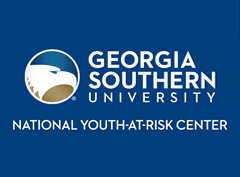Restorative Justice - A Peaceful Response to Misbehavior
Focused Area
Improving School Climate for Youth-At-Risk
Relevance to Focused Area
Schools that have adopted Restorataive justice practices are able to create a safe and healthy environment and have been able to accomplish the following:
Reduce - exclusions/detentions, disruptive behavior, conflict, bullying, suspensions
Improve - behavior, learning, attendance, learning, relatonships
Develop - truth telling, responsibility, accountability, emotinal literacy, conflict resolution skills
Increase - empathy and positive life skills.
Primary Strand
Social & Emotional Skills
Relevance to Primary Strand
Restorative Justice relates to the social and emotional skills students must have to maintain a positive social climate that is conducive to learning. Students from all backgrounds face challenges that school leaders who are appropriately trained can help them overcome. Educators will learn strategies that fosters relationship buildingto to create a school community where all students and educators affected by misbehavior talk openly and freely about their issues and concerns. Adults and students are engaged in collaborative problem solving to repair their relationship and strenghten their community. RJ enhnaces personal responsibility by making people accountable and empowers growth while finding ways to move forward.
Brief Program Description
Goal: to show participants how to reduce suspensions rates by building school culture that focus on relationships, giving voice to all, engaing in problrm solving, enhancing personal responsibility, and empowering change and growth.
The participants will experience an example of a relationship building circle to build a strong community in their classroom and school as their students build communication skills and emotional intelligence. When students are given the opportunity to be heard, are acknowledged and verified, they develop a positive sense of self and the social/emotional lkills they need to resolve conflict and empower them to want to achieve academically.
Summary
In an effort to close the achievement gap among minority students and their peers, Orange County Public Schools in Orlando, Florida created The Minority Achievement Office (MAO). To address and reduce the disparity in out of school suspension (OSS) rate for minorities, OCPS has adopted restorative practices to respond to discipline issues. The MAO trained middle school personnel on Restorative Justice (RJ) Practices to developed RJ teams at each school site consisting of an RJ lead, guidance counselors, deans and Positive Alternative to School Suspension (PASS) person at each school. The first quarter data is already showing a 600 days decrease in OSS and 2nd quarter looks promising. All high schools will be trained this summer as well.
The goal is to change secondary school culture to a more compassionate environment where relationships are built through positive communication. With a strong foundation of positive relationships, when misbehavior occurs, everyone affected is heard with the purpose of restoring the relationship and community. When we allow students and adults to speak openly and freely, the information we garner can open the door for rich conversations and deeper understanding of all, which will increase efficacy, motivation, and academic achievement.
Participants will gain understanding of RJ by participating in an RJ circle activity that they can easily implement in the classroom or school at large. For our first activity, participants will for an RJ circle and reflect on each other’s responses. We will look at some statistics for our males of color that can interfere with building relationships and trust in the classroom, which are necessary to advance student learning. Because speech and the written word are the prominent conduits educators use to communicate ideas, we will learn some scripts that promote responsibility as well as build empathy and positive life skills.
Evidence
The presentation is based on the work of Kay Pranis and the book, Circle Forward, written by Carolyn Boyes-Watson and Kay Pranis. Prior to providing RJ training district-wide, it was first offered to the 38 middle schools which focused on reducing out-of-school suspensions in order to increase academic seat time. Data from the first quarter of the 2015-2016 academic school year illustrates a 600 day reduction of out-of-school suspensions for our Black and Hispanic students.
Format
Individual Presentation
Biographical Sketch
Nancy Charles is a district resource teacher in the Minority Achievement Office in Orange County Public Schools, Florida —the 10th largest school district in the nation. Nancy has worked as an educator for over 20 years as a classroom teacher and instructional leader: History, Language Arts, and French teacher, parent liaison, literacy coach and instructional coach. In addition, Nancy has conducted district professional development on culturally responsive instruction, teaching methods, and restorative justice practices to reduce the out of school suspension rate. She currently coordinates the district implementation of Restorative Justice Practices. Nancy has received many awards for her work with students and the community and has a B.S. in Marketing and an M.S. in Curriculum and Instruction.
Recommended Citation
Charles, Nancy D., "Restorative Justice - A Peaceful Response to Misbehavior" (2016). National Youth-At-Risk Conference, West (2015-2017). 24.
https://digitalcommons.georgiasouthern.edu/nyar_vegas/2016/poster/24
Restorative Justice - A Peaceful Response to Misbehavior
Goal: to show participants how to reduce suspensions rates by building school culture that focus on relationships, giving voice to all, engaing in problrm solving, enhancing personal responsibility, and empowering change and growth.
The participants will experience an example of a relationship building circle to build a strong community in their classroom and school as their students build communication skills and emotional intelligence. When students are given the opportunity to be heard, are acknowledged and verified, they develop a positive sense of self and the social/emotional lkills they need to resolve conflict and empower them to want to achieve academically.
